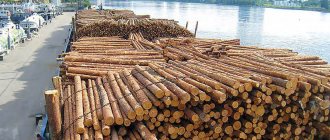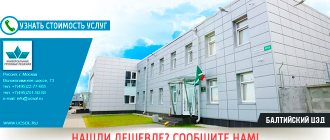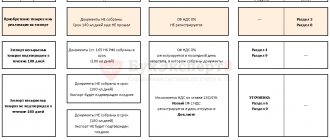According to the general definition, dual-use goods are products that can potentially be used in both the civilian and military spheres.
Both in legislation and in practice there are different terms: dual-use goods, controlled goods, controlled lists, export controlled goods. All these concepts are synonyms and have essentially the same meaning .
However, the term “ military products ” (MP) refers to a different area: in this case, we mean products used only in the military sphere. Read more here.
What does the law say?
The Federal Law “On Export Control” (Article 1) provides the following definition of controlled products:
Controlled goods and technologies are raw materials, materials, equipment, scientific and technical information, which, due to their characteristics and properties, can make a significant contribution to the creation of weapons of mass destruction, their delivery vehicles, other types of weapons and military equipment, as well as products that are especially dangerous in terms of preparing and (or) committing terrorist acts.
Specific lists of controlled goods are approved by various Decrees of the President of the Russian Federation.
Despite the formation of the Eurasian Economic Union (EAEU) and a single customs territory in 2014, export control issues are still regulated at the national level.
In other words, when exporting dual-use products from Russia to the EAEU countries (Belarus, Armenia, Kazakhstan, Kyrgyzstan), it is necessary to issue permits in the field of export control (as if the goods were exported outside the EAEU).
State policy in the field of export control is an integral part of the domestic and foreign policy of the Russian Federation and is carried out solely to ensure the security of the country, its political, economic and military interests. At the same time, export control is a mechanism for ensuring compliance at the national level with the international obligations of the Russian Federation in the field of non-proliferation of weapons of mass destruction.
Export control is based on the licensing mechanism for the export and import of controlled goods and technologies, which is implemented through licensing of foreign economic transactions with them. The rules for carrying out foreign economic transactions with goods and technologies included in the control lists are determined by decrees of the Government of the Russian Federation, which regulate the procedure and conditions for transactions, requirements for concluded contracts, as well as for the composition and content of documents submitted to obtain a license. The decision to issue or refuse to issue a license is made in an interdepartmental format based on a comprehensive assessment of non-proliferation risks associated with an export transaction.
Export control is a set of measures to ensure the procedure established by the state for carrying out foreign economic activity in relation to a certain group of controlled goods and technologies (raw materials, materials, equipment, scientific and technical information, works, services, results of intellectual activity) that can be used in the creation of weapons mass destruction, means of its delivery, other types of weapons and military equipment, or during the preparation and (or) commission of terrorist acts.
At the same time, foreign economic activity is understood as foreign trade, investment and other activities, including production cooperation in the field of international exchange of goods, information, work, services, results of intellectual activity (rights to them), that is, exchange between Russian and foreign persons, international organizations and their representatives.
The basis of the international regime for the non-proliferation of weapons of mass destruction is formed by the relevant international treaties, as well as national export control systems. Currently, the following multilateral agreements and arrangements have been established in the field of export control:
— Treaty on the Non-Proliferation of Nuclear Weapons ( NPT );
- Zangger Committee;
— Nuclear Suppliers Group ( NSG );
— Missile Technology Control Regime ( MTCR );
— Australian group (chemical and biological technologies);
— Wassenaar Arrangement to control dual technologies and conventional weapons.
Russian Federation
is a party to the NPT, the Zangger Committee, the NSG, the MTCR, and the Wassenaar Arrangement. The exception is the Australia Group (the international regime for controlling the non-proliferation of chemical and biological weapons).
In accordance with international agreements in the field of export control, international lists of controlled products and guidelines for the export of such products are being developed. States that accede to the agreements make a political commitment to apply these lists and recommended practices within their national export control regimes. However, implementation of rules, approval of licenses, and sanctions remain the prerogative of individual states.
Thus, national export control systems can be considered mechanisms that ensure international non-proliferation regimes.
A key element of all countries' export control systems is licensing. Licensing does not imply the introduction of an absolute ban on the export of sensitive goods, services, technologies and scientific and technical information (except for category I of the MTCR list).
License
- this is permission to carry out a foreign economic transaction, but under certain conditions, with the adoption of certain guarantees that the supplied goods or technology will not fall into the hands of an unwanted user and will not be used for the production of weapons.
The Russian export control system was created in 1992. Currently it has a well-developed structure. The most important legal foundations for its functioning have been created, the areas of responsibility and powers between federal executive authorities have been delineated, a regulatory legal framework has been developed, introduced and continuously improved. In general, the export control system of the Russian Federation complies with international requirements for export control regimes.
Currently, Russia has an authorized federal executive body in the field of export control - the Federal Service for Technical and Export Control (FSTEC of Russia).
The principles of implementation of state policy, the legal basis for the activities of government bodies of the Russian Federation in the field of export control, the rights, duties and responsibilities of participants in foreign economic activity are determined by the Federal Law “On Export Control” dated July 18, 1999 No. 183-FZ.
Website of the FSTEC of Russia.
It should be noted that export control in relation to weapons and military equipment, as well as information, works, services, results of intellectual activity (rights to them), which are military products, is carried out in accordance with the legislation of the Russian Federation in the field of military-technical cooperation (details For information on export control of military products, see the official website of the Federal Military-Technical Cooperation Service of Russia)
Lists (lists) of controlled goods and technologies are approved by Decrees of the President of the Russian Federation. In our country there are six Lists (lists) of controlled goods and technologies. In other countries, such as the US and EU countries, these lists are combined into one common list.
To carry out a foreign economic transaction to transfer listed products (goods and technologies included in control lists) to a foreign person, it is necessary to obtain a license . Transfer refers to any form of transfer (export, sending by post, transfer via electronic communication channels, etc.)
Learn more about obtaining a license.
Types of permits
IFCG experts distinguish three types of permits in the field of export control:
Identification conclusion of the FSTEC of Russia on the non-application of export control measures
Confirms the absence of products in the lists of controlled goods.
This document allows the customs inspector to verify that the goods do not belong to dual-use products, therefore, in practice, the Conclusion is often required during customs clearance of exported (and sometimes imported) goods.
Read more about the FSTEC conclusion
Permission from the Export Control Commission (ECC)
Issued in special cases (in particular, if controlled products are exported temporarily without transfer to a foreign person).
Read more about the KEC Permit
What is the basis for export control of goods?
The concept of export control is based on a visa system for the import and export of goods (technologies) controlled by the state, which is implemented through licensing of foreign economic transactions with them. The procedure for conducting these managed operations at the international level is approved by a series of decrees of the Government of the Russian Federation, establishing the rules and conditions for conducting such transactions, requirements for agreements (contracts), the content and completeness of the package of documents for obtaining a license. The decision to issue it (or refuse to provide the document) rests with a number of interrelated departments after conducting a comprehensive assessment of the risks of “replication” associated with the export of dangerous products.
Export control of goods is a set of measures to control compliance with the official procedure for conducting foreign economic transactions with a limited group of goods (technologies). These include: materials, raw materials, equipment, works and services, scientific and technical data and intellectual property that can contribute to the development of MP weapons and means of supply, other types of military weapons and equipment, and the conduct of terrorist activities.
At the same time, foreign economic activity is considered to be international trade and investment, production cooperation in the global exchange of goods, data, works and services, the results of intellectual property and rights to them - everything that implies an exchange between Russians and foreign citizens, international organizations and their intermediaries.
The foundation of the international regime of non-proliferation of weapons of mass destruction is built on international agreements and state export control systems. There are currently a number of multilateral treaties and committees regulating the export control of goods:
- NPT
(Treaty on the Non-Proliferation of Nuclear Weapons);
- MTCR
(Missile Technology Control Regime);
- Wassenaar Agreements on joint controls over the export of conventional weapons and high technology to conflicting regions;
- NSG
(Nuclear Suppliers Group);
- Zangger Committee;
- Australian Group (regarding the non-proliferation of bio- and chemical weapons).
Russia takes an active part in all of these entities with the exception of the Australia Group as an informal forum of states that harmonizes the rules for export control of goods.
Based on the results of international treaties and agreements relating to export control, international lists of inspected products are compiled and guidelines are developed to streamline their exports. Countries party to the above agreements are committed at the policy level to use these lists and recommended practices in their national export control programs. However, only some states have priority rights to the practical application of instructions, issuance of licenses and sanctions.
As we can see, the state system of export control of products is a kind of mechanism for ensuring an interethnic non-proliferation regime.
The main instrument regulating the export control of goods for all countries is licensing. It does not at all provide for a complete ban on the export of sensitive goods, technologies, services and scientific and technical data, with the exception of category 1 (MTCR list).
What is a license? Approval of a foreign economic transaction on specific conditions and with a 100% guarantee that the exported product (technology) will not end up in the hands of an unwanted user who will use the acquisition to produce MP weapons.
- International transportation of dangerous goods. Brief instructions for businessmen
KEK permit for temporary export
In addition, KEC permission is issued for the export of goods and technologies from the Russian Federation in the form of technical data included in the lists (lists) of controlled goods and technologies approved by decrees of the President of the Russian Federation, without transfer to a foreign person for the purpose of temporary use on the territory of a foreign state with subsequent return to RF.
Thus, a permit from the export control commission is issued for temporary export if the products and (or) technology will not be transferred to a third party (for example, participation in exhibitions, conducting research, etc.).
When customs clearance of export or re-export of controlled products, a License is required. The export control permit is indicated in column 44 of the customs declaration (code 01153 - “Permit (confirmation) for the import (export) of goods subject to export control, issued by the authorized state body of the member states of the Eurasian Economic Union in the field of export control”).
How does export control of goods occur?
Export control of goods in the Russian Federation is carried out through:
- Identification of goods (technologies) by determining their compliance with items included in the controlled lists;
- Permitting procedure for foreign economic transactions;
- Border control, customs clearance and currency checks.
Based on the provisions of the Federal Law “On Export Control” (Article 21), to identify goods (technologies) in foreign economic transactions for their compliance with control lists, state interests and external obligations of the Russian Federation, an official examination is carried out at the level of interdepartmental expert councils under the Ministry of Economic Development and Trade of Russia. It is carried out on the basis of materials provided by the Russian party to the foreign trade transaction to the Ministry of Economy for the purpose of obtaining a license (permit) in accordance with the legislation on export control. The issued conclusion of the state examination serves as the basis for obtaining a license to carry out foreign trade activities with controlled goods (technologies), unless you are denied it. State examination is carried out according to the rules approved in Russia (Resolution No. 294 of April 16, 2001).
To ensure that export controls of goods are carried out in strict accordance with the rules, organizations have the right to establish an EC program at their internal level. Such documents usually provide for organizational, administrative, information activities, etc.
Enterprises with local EC programs must undergo official accreditation by the Ministry of Economy of the Russian Federation, which is carried out in compliance with Regulation No. 176 of February 29, 2000, adopted by the Government of Russia. This is necessary for issuing a general license - a permitting document for foreign economic transactions (meaning goods for which export control is required).
- Container and intermodal transport using Incoterms
List of attached documents
- Application for the provision of services (not required when ordering services through the website);
- List of research objects;
- An agreement (contract, agreement) with appendices and additions (amendments) or other document on the basis of which a foreign economic transaction is carried out, and if such a contract has not been concluded or is absent - materials revealing the content, nature and conditions of the proposed foreign economic transaction;
- Documents that allow you to evaluate the product: technical characteristics of the product being moved (technical description indicating the parameters (characteristics), data on the structural materials used, passport, technical specifications, general view drawings, assembly drawings, drawings of individual components);
- Information about the scope of application of the transported products;
ATTENTION! This list of documents is not exhaustive. The final list of documents to be submitted to the FSTEC of Russia depends on the properties of the controlled goods and the terms of the transaction. A complete list of documents with our recommendations for their preparation will be sent to you after your application has been reviewed by specialists.
If the above documents were previously submitted for an identification examination or consultation, it is sufficient to provide a Letter of Description, where all the necessary information was previously indicated.
What does not fall under Law No. 248-FZ
According to Part 3 of Art. 1 of Law No. 248-FZ, state control and supervision do not include:
- verification of statements and reports of crimes and incidents by the Department of Internal Affairs and other investigative bodies;
- operational search activities, inquiry and preliminary investigation;
- production and execution of decisions in cases of administrative offenses;
- consideration of cases of violation of advertising legislation;
- checking the elimination of the circumstances that served as the basis for the administrative suspension of activities;
- activities of courts, ensuring the established procedure for the activities of courts and execution of judicial acts, acts of other bodies and officials;
- activities of the prosecutor's office on prosecutorial supervision;
- investigation of the causes of accidents, industrial accidents, occupational diseases, infectious and mass non-infectious diseases (poisonings, injuries) of people, animals and plants, harm (damage) to the environment, property of citizens and organizations, state and municipal property;
- activities of the foreign intelligence agencies of the Russian Federation (SVR);
- activities of state security bodies;
- activities of FSB bodies;
- activities of the federal executive body for mobilization preparation and mobilization in the Russian Federation.
The listed types of activities are not regulated by Law No. 248-FZ, but by their own specialized laws in each area.
Where does your legislation apply?
Law No. 248-FZ a priori could not accommodate many issues. Therefore, the organization and implementation of certain types of control and supervision are regulated by federal laws on the relevant types of control and the provisions and/or regulatory legal acts of federal executive authorities adopted in accordance with them. This applies in particular to:
- federal state fire supervision;
- Federal State Energy Supervision;
- federal state construction supervision;
- federal state metrological control (supervision);
- federal state supervision in the field of industrial safety;
- federal state sanitary and epidemiological control (surveillance);
- Federal State Veterinary Control (Supervision), etc.
Licensing
The licensing process in Russia occurs in accordance with Federal Law dated May 4, 2011 No. 99-FZ “On licensing of certain types of activities.” Law No. 248-FZ is partially valid here and applies to:
- planned control (supervisory) activities of legal entities or individual entrepreneurs holding a license (licensees);
- unscheduled control (supervisory) activities of licensees;
- preventive measures in relation to licensees.
It is important that routine monitoring of licensees can be canceled or replaced with periodic confirmation of their compliance with licensing requirements. This is a government service.




